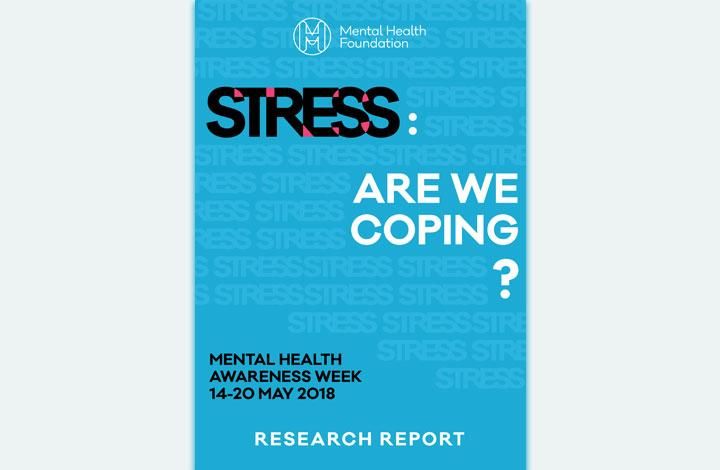74% of UK adults have felt so stressed at some point over the last year they felt overwhelmed or unable to cope
- 81% of women said this compared to 67% of men
- 83% of 18-24 year-olds said this compared to 65% of people aged 55 and over
32% of adults said they had experienced suicidal feelings as a result of stress
- 35% of women said this compared to 29% of men.
- 39% of 18-24 year-olds said this compared to 25% of adults aged 55 and over.
16% of adults said they had self-harmed as a result of stress
- 18% of women said this compared to 13% of men.
- 29% of 18-24 year-olds said this compared to 6% of adults aged 55 and over.
A UK-wide stress survey has found that almost three-quarters of adults (74%) have felt so stressed over the past year that they felt overwhelmed or unable to cope.
The survey – commissioned by the Mental Health Foundation – also found that almost a third of people (32%) had experienced suicidal thoughts or feelings because of stress.
Meanwhile, one-sixth of people (16%) said they had self-harmed as a result of feelings of stress.
The study was commissioned by YouGov to launch Mental Health Awareness Week, which has been run by the Mental Health Foundation since 2001. The study is believed to be the largest and most comprehensive stress survey ever carried out across the UK, with 4,619 people surveyed.
The study is included in a new report by the Mental Health Foundation published today, Stress: Are we coping?
Further findings from the survey on the impact of stress on young people will be released later in the week. (Wednesday 16th May)
Mental Health Foundation Director Isabella Goldie said:
"Millions of us around the UK are experiencing high levels of stress, damaging our health. Stress is one of the great public health challenges of our time, but it still isn't being taken as seriously as physical health concerns.
"Stress is a significant factor in mental health problems, including anxiety and depression. It is also linked to physical health problems like heart disease, problems with our immune system, insomnia and digestive problems.
"Individually, we need to understand what is causing us personal stress and learn what steps we can take to reduce it for ourselves and those around us.
"We also need to change at a societal level. This includes ensuring that employers treat stress and mental health problems as seriously as physical safety.
"We are also asking for well-being days to be provided to public sector workers to reduce the pressure on those who work hardest to look after us."
In addition
The week will be marked by the lighting -up in green of a number of public buildings, including Edinburgh Castle, the Bank of England, the National Theatre and many others (green is the colour of international mental health awareness).
The Mental Health Foundation is running the Scottish Mental Health Arts and Film Festival – the world’s biggest mental health arts festival – across the period.
High-profile celebrities and public figures will wear green ribbon pin badges to support mental health awareness.
The Mental Health Foundation is the UK’s charity for everyone’s mental health. With prevention the heart of what we do, we aim to find and address the sources of mental health problems so that people and communities can thrive.
Further information
UK survey: Total sample size was 4619 adults. Fieldwork was undertaken between 29th March - 20th April 2018. The survey was carried out online. The figures have been weighted and represent all UK adults (aged 18+). (YouGov)
For interviews and further information, please contact Cal Strode on 0207 803 1110 or [email protected] .
Stress: Are we coping? report

